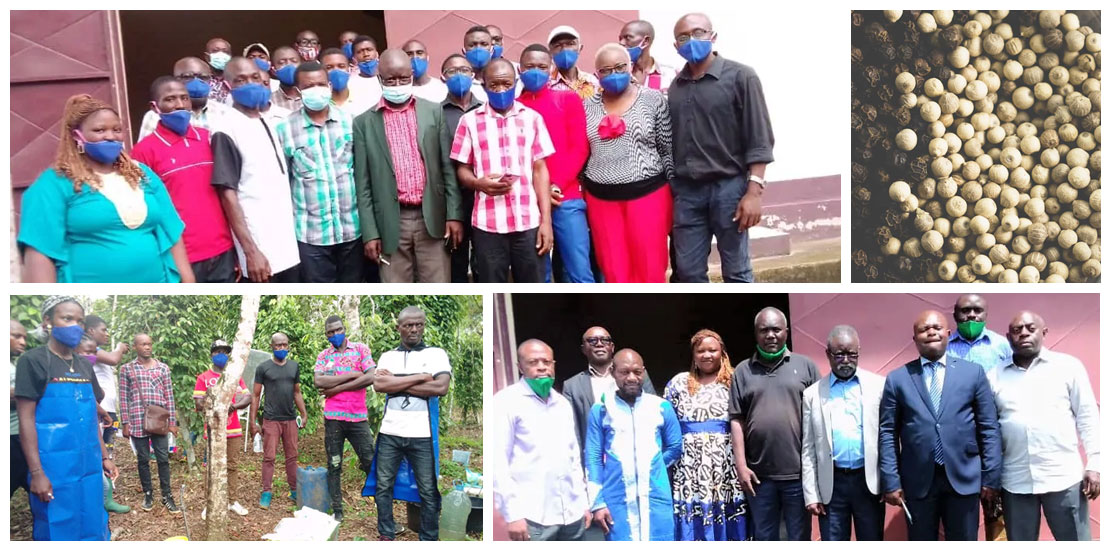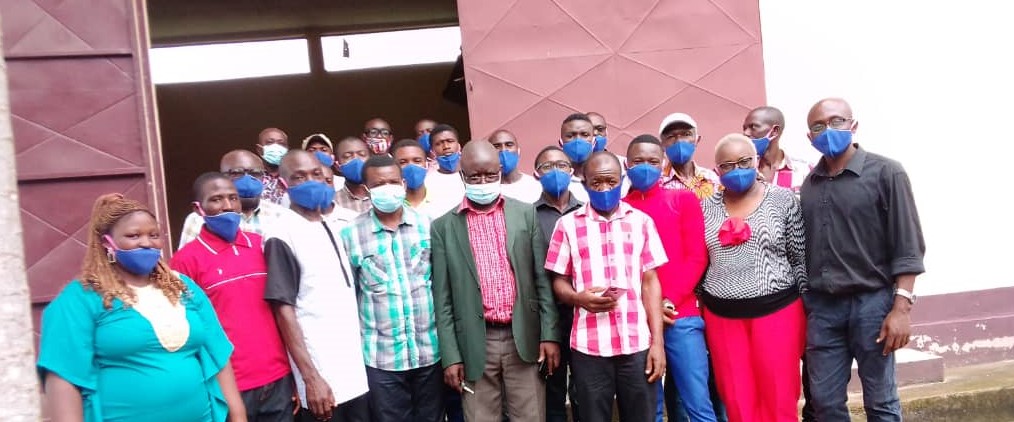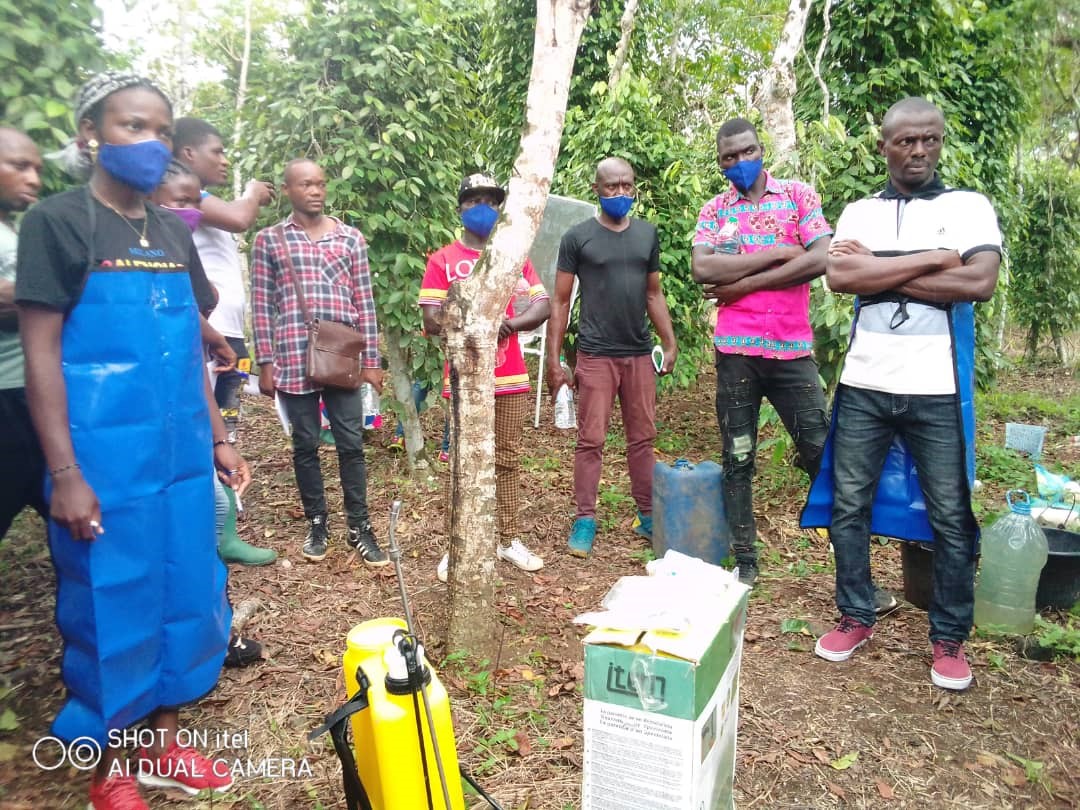COLEACP training – Improving SPS practices along the whole Penja pepper value chain
- 16/09/2021
- Posted by: Gaetan Dermien
- Category: Africa, Cameroon

Since June, training on good SPS practices for the Penja pepper sector has been continuing through the Standards and Trade Development Facility (STDF) project “Strengthening the phytosanitary monitoring and certification system for Cameroon’s fruit and vegetable sector”.
Stricter European regulations since 2016 threatened to limit the export potential of Penja pepper, a unique agricultural product originating from Cameroon. This project centres on supporting Penja pepper producers to understand the SPS risks and strengthening their capacity to deal with them. The emphasis is on multiple levels of training and engagement across all sectors of the Penja pepper value chain, including nursery workers, small- and large-scale producers, agricultural input distributors, processors and exporters. It also includes the national and regional authorities responsible for issuing phytosanitary certificates and for research.

In June in Penja, the first COLEACP group training sessions for packaging managers covered Good packaging and storage practices for Penja pepper.

And on 14 and 15 July, COLEACP organised group training on the Safe use of pesticides for plant protection product applicators in the Loum basin. This technical and practical training took place in the classroom and in the field, using the educational animations developed by COLEACP.

The fourth project steering committee meeting was held on 19 August in Penja and remotely. Planning for the next six months is focusing on the production of teaching tools on good SPS practices for the sector, and the roll-out of training for the various trades in the sector.
You can read more about the Penja pepper project in the STDF 2020 Annual Report.
These activities are organised within the framework of the Project to Strengthen the Phytosanitary Monitoring and Certification System for Cameroon’s fruit and vegetable sector, supported by the Standards and Trade Development Facility (STDF) and implemented by COLEACP.


![EU and GB approval changes (August-November 2024) 9-FFM+-[ENG]](https://news.colead.link/wp-content/uploads/2024/06/9-FFM-ENG-150x150.jpg)